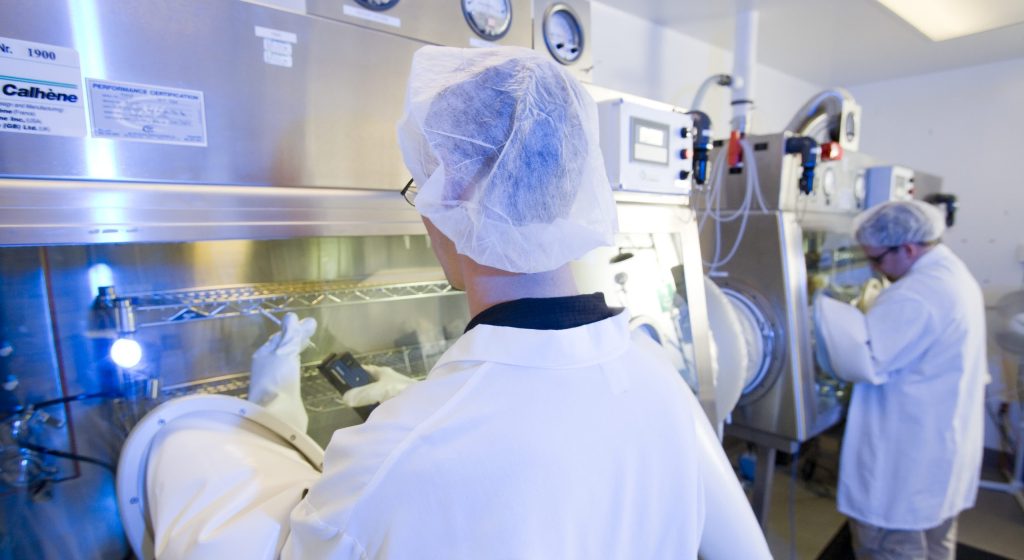Study Outline
The Product Sterility Isolator test evaluates samples for sterility by placing them in growth media, incubating them for a minimum of 14 days, and then checking for evidence of microbial contamination. Similar to our other Product Sterility Cleanroom test, however this sterility test is performed in an isolator that has been decontaminated with hydrogen peroxide. This extra level of isolation is imperative for products such as injectable drugs due to the higher degree of sterility required. The Isolator only tests products that meet USP standards as AAMI standard products do not need the additional isolation factor due to more frequent positives in their testing.
Samples may be tested using either direct inoculation or membrane filtration, and using a tryptic soy broth media (TSM) or fluid thioglycolate media (FTM), as follows:
Direct Inoculation:
Samples tested by direct inoculation are aseptically immersed in nutritive broth. Incubating the growth medium with a defined quantity of drug product sample. The dilution of product used must be adequate to overcome microbial properties present in the drug product being tested.
Membrane Filtration:
Samples tested by membrane filtration (liquids, filterable solids, soluble oils [oils] and sterile-pathway-only devices) are passed through a 0.45µm filter, and the filter is immersed in the test media.
Tryptic Soy Broth Media:
For Isolator Sterility tests, the USP method calls for a tryptic soy broth media (TSM) for aerobic and fungal growth at incubation temperatures of 20-25°C. Sample size is determined both by batch size and individual container fill volumes.
Fluid Thioglycolate Media:
For Isolator Sterility tests, the USP method calls for a fluid thioglycolate media (FTM) used for anaerobic growth at an incubation temperature of 30-35°C. Sample size is determined both by batch size and individual container fill volumes.
After a 14-day incubation, samples are evaluated for the presence of turbidity and/or growth. A media transfer and/or confirmation test may be performed. A failure investigation is performed as necessary. Recovered organisms are identified and compared to the organisms that may have been recovered on monitors performed by the test analyst during applicable test sessions. It is determined whether any anomalies occurred on the day of testing, with media sterilization, during sample processing, and/or during shipping.
Additional Recommended Testing
Method Suitability (Bacteriostasis/Fungistasis) is a required validation needed annually to substantiate a sterility test in confirming that there are no antimicrobial properties present. If changes are made in a pharmaceutical compound, or a new product is needed, It is critical that method suitability testing is done before sterility testing.
Testing Locations
- Salt Lake City, UT, USA
- Itasca, IL, USA
- Leuven, Belgium
- Espergaerde, Denmark
- Wiesbaden, Germany
Learn more about our locations and their certifications.
Contact Us
If you have additional questions about Product Sterility Isolator test services, or would like to consult with the experts at Nelson Labs, just send us a request or call us at +1 (801) 290-7500.



